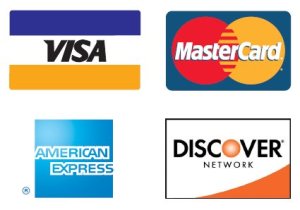1) Not saving anything for retirement. Come on, nothing? Who’s gonna take care of you when you get older? At least try to save 1% to 2% of your salary per month. That could be like $50 per month, we all should be able to afford that.
2) Not keeping tabs on your finances and over-drafting your accounts. My wife used to do this all the time. You’ll overdraft your account (i.e. not have enough to cover a check or debit card purchase) and get hit with a $5 or $10 fee. That’s money being thrown away! Learn to balance your bank account and try not let this happen anymore!
3) Picking up something in the ‘impulse’ section of the checkout. I know how enticing those candy bars and magazines look while you’re standing there waiting to checkout. That’s because retailers have concocted an evil plan to make you cough up a little extra dough at the checkout. Don’t fall for their trap!
4) Carrying debt on your credit card. Some credit cards could carry an interest rate of 15%-25%. Yikes, that sucks. That means your debt is growing every month you don’t pay it off…and growing fast. Do what it takes to get that paid down…ASAP!
5) Buying things and not using them. Sure getting a membership at the gym seemed like a good idea at the time, as well as the premium cable package. Don’t lie to yourself; if you’re not using memberships, admit it and cancel the policy. No use throwing away money each month.
6) Paying unnecessary fees. We often will get hit up with small, couple of dollar fees. Whether it’s your bank charging you a $12 monthly service fee or your utility company assessing a $3 “service fee” to run your credit card, these things need to go. Where there’s a will there’s a way. Switch banks or set up a bank withdrawal system to pay your utility bill without a credit card. With a little digging, you almost always can find a way to avoid paying those pesky service fees that can add up.
7) Eating out too often. Eating out is both super convenient and super delicious. Problem is, it can get super expensive. All those lunches we go out on and dinners we pick up on the way home eat up a large portion of our monthly budget. Learn to set a goal for yourself and pack your lunch or cook your dinner a couple more times each week.
8) Hitting up the vending machine at work. We’ve all been there, the mid-morning/mid-afternoon sweet tooth. Unfortunately, those overpriced snacks and sodas are both pricey, and unhealthy. Do yourself a favor and next time you’re at the grocery store, buy a couple snacks in bulk. While you’re there, pick up a 12 pack of your favorite soda. That’s basically what the vending machine people do; buy in bulk and then double the price and sell it to you. Keep your desk stocked with delicious snacks and you’ll certainly be doing your wallet a favor (no promises about doing your waistline a favor…)
Kicking these 8 bad financial habits won’t make you rich overnight. They’ll certainly get you on the right track though!
Check out these other lists if you enjoyed this one:
8 ways to pull off brown bagging
The top 11 excuses to get out of yet another dinner with friends








